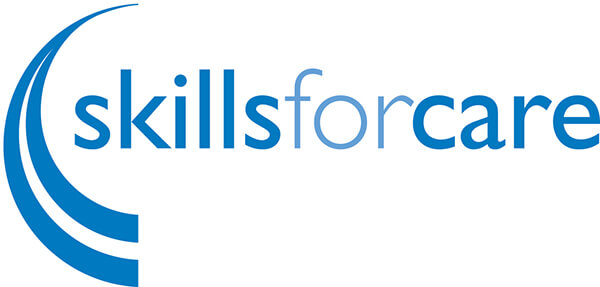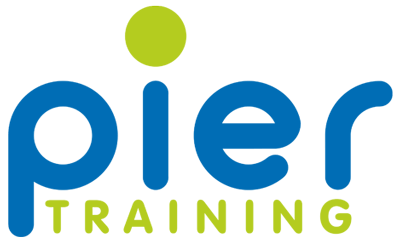COURSE
L3 Apprenticeship Standard for Lead Adult Care Worker
The Lead Adult Care Worker Apprenticeship is an integrated programme of knowledge and skills acquisition, developed alongside core behaviours expected of a competent worker operating in a regulated field. The award of the apprenticeship certificate will signify recognition of competence in a role and enable progression to higher levels of skills development.
Job Roles this qualification is suitable for:
As a Lead Adult Care Worker, you will make a positive difference to someone’s life when they are faced with physical, practical, social, emotional or intellectual challenges. You will be expected to exercise judgement and take appropriate action to support individuals to maintain their independence, dignity and control. By providing leadership, guidance and direction at the frontline of care delivery you will be instrumental in improving the health and wellbeing of those receiving care and support. Lead Adult Care Workers will in some circumstances have delegated responsibility for the standard of care provided and may supervise the work of other care workers. This exercising of autonomy and accountability means leading and supporting others to comply with expected standards and behaviours.
Lead Adult Care Workers may work in residential or nursing homes, domiciliary care, day centres or some clinical healthcare settings. As well as covering Lead Adult Care Workers this standard also covers Lead Personal Assistants who can work at this senior level, but they may only work directly for one individual who needs support and/or care services, usually within their own home.
The programme consists of the following:
- Level 3 Diploma in Adult Care
- Functional skills in Maths at Level 2 (Mandatory for age 16-18 year old learners, unless a valid exemption is provided, discretionary for learners aged 19+ ). Speak with our team to find out more about recently updated functional skills policy
- Functional skills in English at Level 2 – consisting of 2 tests, reading and writing and an assessment in speaking and listening, (Mandatory for age 16-18 year old learners, unless a valid exemption is provided, discretionary for learners aged 19+ ). Speak with our team to find out more about recently updated functional skills policy)
- Care Certificate (15 Units of knowledge)
- Ongoing assessment by the employer and provider – for example meetings with apprentice, employer and learning provider, observations of workplace, gathering evidence
- Completion of the Self-Assessment exercise
- End-Point Assessment
Care Certificate Units:
- Understand your role
- Your personal development
- Duty of care
- Equality and diversity
- Work in a person-centred way
- Communication
- Privacy and dignity
- Fluids and nutrition
- Awareness of mental health, dementia and learning disabilities
- Safeguarding adults
- Safeguarding children
- Basic life support
- Health and safety
- Handling information
- Infection prevention and control
How long will it take to complete?
The qualification usually takes around 12-24 months however it is possible to complete earlier depending on existing achievement and individual circumstance- this can be discussed with your Tutor.
Aims of this qualification

The apprenticeship standard provides a high-level description of the skills, knowledge, values and behaviours required of the Healthcare Support Worker apprentice. On completion of this apprenticeship the individual will be a competent and job-ready Lead in Adult Care.
How is it delivered?

You will be allocated a qualified Tutor to support the full completion of your qualification and prepare you for end point assessment. They will visit you on a regular basis in the workplace to conduct assessments which will be planned with you and your manager; assessment will also be conducted through a blended model of E–Learning and face to face delivery. The Tutor will manage your portfolio of evidence using an online electronic system called Onefile and give you regular updates about progress. You can contact your Tutor in between visits to discuss any aspect of your qualification and will be able to access your portfolio 24/7.
Outcome:
- Care – is caring consistently and enough about individuals to make a positive difference to their lives
- Compassion – is delivering care and support with kindness, consideration, dignity and respect
- Courage – is doing the right thing for people and speaking up if the individual they support is at risk
- Communication – good communication is central to successful caring relationships and effective team working
- Competence – is applying knowledge and skills to provide high quality care and support
- Commitment – to improving the experience of people who need care and support ensuring it is person centred
On Programme Learning:
It is strongly recommended that on programme assessment of knowledge, skills and behaviour outcomes en-route to the final synoptic end-point assessment takes place.
Assessment Gateway
Before the apprentice is adjudged ready to undertake the end-point assessment by their employer and learning provider, they will need to:
- Achieve the Level 3 Diploma in Adult Care
- Complete all units of the Care Certificate
- Achieve Level 2 Maths and English Functional Skills (Mandatory for age 16-18 year old learners, unless a valid exemption is provided, discretionary for learners aged 19+ ). Speak with our team to find out more about recently updated functional skills policy
- Complete a self-assessment – This self-assessment must be submitted to the independent end point assessor as a source of evidence to prepare for the professional discussion
- Service User Testimonies – In the last three months of the apprenticeship following the completion of the Diploma, collate testimonies from people who use services. This must be submitted to the end point assessor to support the professional discussion assessment
The purpose of the end point assessment is to test (in a synoptic way) the skills, knowledge and behaviours of the apprentice as set out in the apprenticeship standard.
End point assessment provides apprentices with a showcase opportunity to provide oral and documentary evidence of their knowledge, skills and behaviours developed throughout the apprenticeship. Enables the independent assessor to assess the skills and behaviours of the apprentice by observing the apprentice in the course of their normal work. Tests the knowledge acquired by the apprentice throughout the apprenticeship.
End Point Assessment
An End-Point Assessment will be carried out by staff from an independent End-point assessment provider approved by the Register of Apprenticeship Organisation.
The End Point Assessment will test the entire Standard, and be undertaken as follows:
- A Situational judgement test – Multiple choice 60 questions
- Professional Discussion (45 minutes)
The End Point Assessment requires apprentices to demonstrate they have achieved the standard.
Progression routes:
The apprenticeship standard provides a high-level description of the skills, knowledge, values and behaviours required of the Healthcare Support Worker apprentice. On completion of this apprenticeship the individual will be a competent and job-ready Lead in Adult Care and progress into further senior roles within the Healthcare sector.
Units can also be used for continuing professional development in the learner’s chosen field.
If you have already discussed joining a cohort with Pier Training, please click here to apply for this course. A Pier Training representative will contact you to discuss the next steps of your enrolment.
For new enquiries please submit your request here and a representative from Pier Training will contact you shortly.
